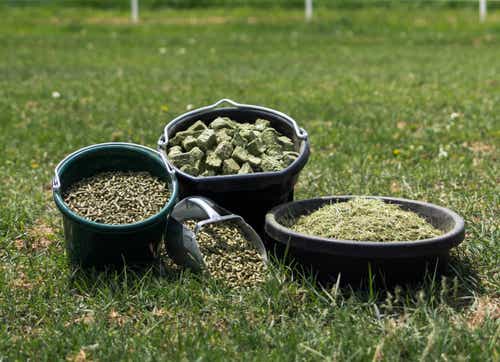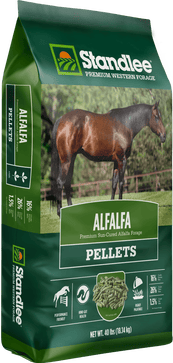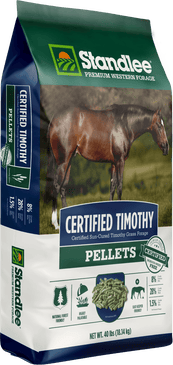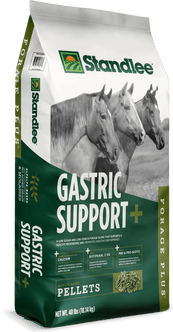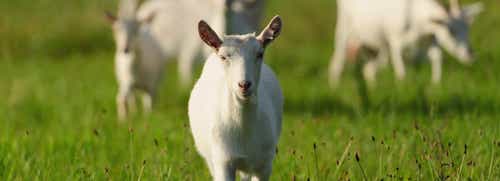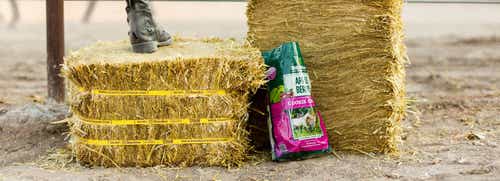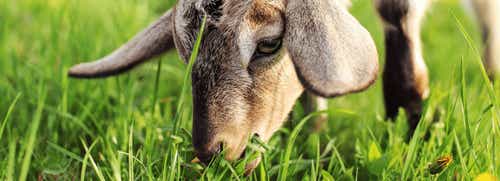
The Importance of a Consistent Diet for Your Horse
A horse's nutrition is directly tied to its health and performance. What, when and how a horse is fed impacts all aspects of equine life. While it may seem easy to change feeds with the seasons or for convenience, horses perform best when routine and consistency are provided.
Understanding the Basics of Equine Nutrition
Essential Nutrients for Optimal Health
To maintain excellent health, horses require six essential nutrient groups:
- Carbohydrates – Provide energy
- Fats – Offer a concentrated energy source
- Proteins – Support muscle repair and growth
- Vitamins – Aid in metabolic function
- Minerals – Essential for skeletal and immune health
- Water – Vital for digestion, temperature regulation, and nutrient transport
Among all nutrients, water is the most critical, supporting nearly every bodily function.
The Role of Forage in a Horse’s Diet
A horse's diet should consist mainly of forage, which is hay and pasture. Considering horses have evolved to spend the better part of the day grazing, their digestive systems can handle a steady intake of fibrous material. Gut motility is improved alongside the prevention of ulcers and colic with high-quality forage.
Adapting Nutrition for Age, Activity, and Health
Just as humans need different diets at different stages of life, so do horses. A growing foal needs more protein and minerals to support development, while a senior horse may need softer, more easily digestible forage. Performance horses require higher energy feeds to sustain their activity levels, while horses with metabolic conditions may need restricted diets to manage their health. Understanding your horse’s unique needs is essential to developing a feeding routine that promotes health and vitality.
Risks of Inconsistency in Your Horse’s Diet
How Fluctuations Affect Digestive Health
A horse’s gut microbiome is finely tuned to its regular diet. Sudden changes—like a new type of hay or abrupt introduction of grain—can throw this system out of balance. When that happens, harmful bacteria can proliferate, leading to digestive upset or worse.
Energy and Performance Impacts
Irregular feeding can cause:
- Energy highs and crashes
- Reduced stamina and focus
- Behavioral shifts (lethargy or excitability)
These effects can interfere with training and performance.
Risk of Colic and Other Health Problems
Colic—a serious and potentially fatal condition—is often triggered by:
- Abrupt dietary changes
- Irregular feeding schedules
Consistent feeding practices help reduce this risk.
How to Build a Consistent Feeding Routine
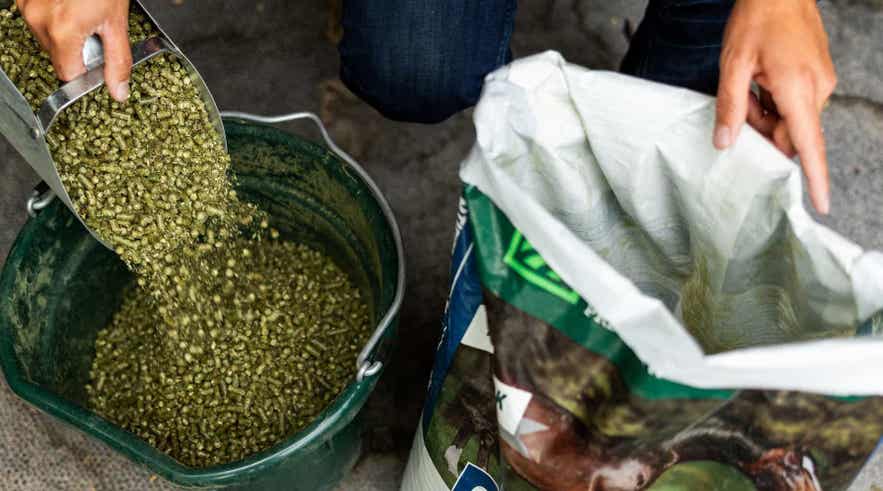
Establishing a Daily Feeding Schedule
Horses thrive on routine. Feed them at consistent times each day—ideally:
- 2–3 meals per day
- Evenly spaced, especially for stalled horses
Measuring Feed and Portions Accurately
- Use a scale or scoop to ensure consistency in feed portions
- Base feed amounts on weight, not volume, especially for concentrated feeds
- Avoid over- or underfeeding, which can cause health issues such as obesity or nutrient deficiencies
Timing and Frequency Matter
Long gaps between meals can increase the risk of gastric ulcers due to prolonged acid buildup. Keeping forage available throughout the day mimics natural grazing behavior and keeps the digestive system functioning properly.
Staying Consistent While Traveling or Competing
Plan Ahead to Maintain Routine
Traveling for shows, trail rides, or veterinary appointments can disrupt your horse’s routine. Plan ahead by:
- Packing enough of your horse’s regular hay and feed
- Avoiding substitutions, even if they seem similar
Keep Forage and Water Available
During travel or while away from home:
- Always provide clean, fresh water
- Keep your horse on familiar forage
Dehydration and lack of fiber can quickly lead to colic, especially under the stress of travel.
Monitoring Your Horse’s Nutrition and Health
Recognizing Signs of Imbalance or Deficiency
Common signs of poor nutrition include:
- Dull coat
- Weight changes
- Hoof issues
- Behavioral shifts (irritability, lethargy)
- Changes in manure consistency
Tracking Weight and Condition Over Time
- Use a weight tape or body condition scoring system
- Take photos and document regularly
- Review diet if you notice sudden drop or gain in condition
Knowing When to Consult a Professional
If you're unsure whether your horse’s diet is meeting its needs, consult a professional. A vet or equine nutritionist can evaluate your current feeding program and make science-based recommendations tailored to your horse’s lifestyle, breed, and health.
Selecting and Evaluating Forage Quality
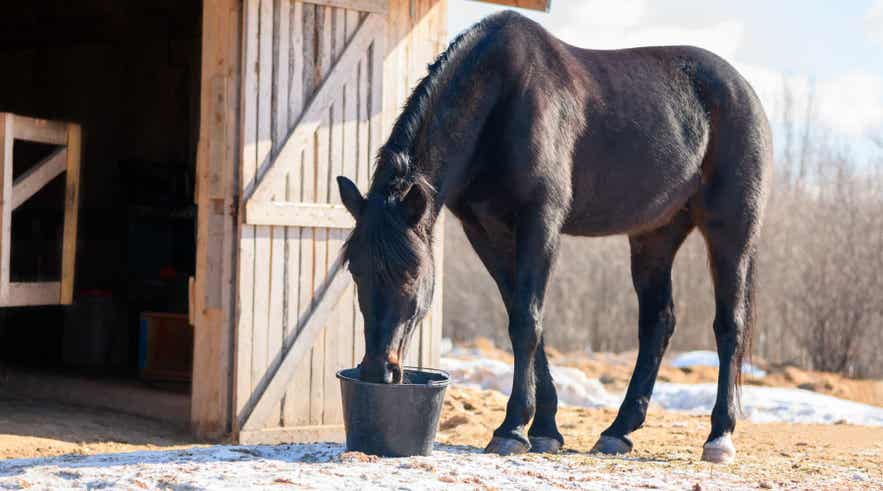
Why High-Quality Forage Makes a Difference
High-quality forage offers the best nutritional value and digestibility. Better forage equals better gut health, coat shine, and overall vitality.
How to Identify Good Forage
Look for hay that is:
- Clean
- Sweet-smelling
- Soft in texture
Avoid musty, dusty, or moldy hay. Whenever possible, test your hay for:
- Protein
- Fiber
- Sugar content
Choosing Reliable Forage Sources
Building a relationship with a reputable forage supplier ensures consistency in quality and type. This helps you maintain a stable diet and avoid unexpected issues that can arise from batch-to-batch variability.
Safely Adjusting Your Horse’s Diet
How to Make Gradual Changes
Introduce any new feed or hay slowly over 7–10 days:
- Mix a small amount of the new feed into the old
- Gradually increase the ratio of new to old each day
By using this approach, it gives the digestive system time to adjust.
Reducing Risk of Digestive Upset
To further minimize risk during diet changes:
- Ensure hydration
- Minimize stress
- Monitor for signs of discomfort, diarrhea, or appetite loss
- Pause the transition if symptoms arise
Final Thoughts
Feeding your horse consistently isn’t just good practice—it’s a foundation of responsible horse care. A stable diet supports:
- Digestion
- Energy levels
- Mood and behavior
- Long-term health
By maintaining a steady, high-quality feeding routine and meeting your horse’s individual needs, you can ensure your equine companion thrives—no matter the season or stage of life.

